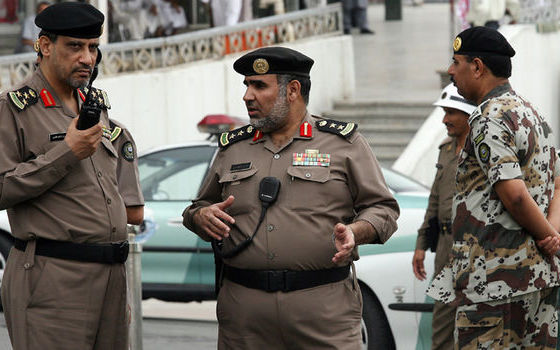Over the past several weeks – since early September – Saudi security forces have arrested at least 16 people perceived to be critical of Mohammed bin Salman, the Crown Prince, and of the government’s policies towards Qatar. The detained individuals include prominent religious figures, writers, journalists, academics, and activists like Abdulaziz al-Shubaily and Issa al-Hamid, who are founding members of the Saudi Civil and Political Rights Association (ACPRA) and prominent human rights defenders. The Saudi government is also encouraging the public to report on their fellow citizens for entry onto an apparent “blacklist” of dissenters. This suppression of dissent comes amid speculation that the Crown Prince is positioning himself for ascension to the throne and looking to suppress any voices that might challenge his succession.
These new arrests contravene the initial promises of Crown Prince Mohammed, who had announced a number of reforms that would not only foster economic diversification, but also create a more tolerant and open society. In recent months, Saudi Arabia has enacted a number of harsh new policies that seem to clash with Salman’s stated desire for progressive change, including encouraging citizens to name dissidents who will be placed on a government blacklist for their peaceful dissent. Those recently detained are on this list, even though some of them had supported Salman’s plans for reform. According to the Saudi authorities, the arrests were carried out as part of a plan to guarantee the kingdom’s stability, and those arrested are said to have received financial support from two foreign countries, including Qatar. Indeed, the Saudi government has accused the detainees of being part of a Qatari-backed conspiracy. However, dissident voices have denounced the arrests and raised concerns that the government is attempting to silence those who oppose the Saudi-backed blockade against Qatar.
Prominent clerics Salman al-Awdah, Awad al-Qarni and Ali al-Omary are the most well-known among the 16 detainees, while security forces also detained a poet, a university professor, and a well-known businessman. The clerics al-Awdah, al-Qarni, and al-Omary, though outside the state-backed religious establishment, have extensive influence in Saudi society and substantial popularity online, with millions of followers on social media. At times, they have used their positions to criticize the government.
Al-Awdah, for example, who has over 14 million followers on Twitter, has previously faced imprisonment, including from 1994 to 1999, for his advocacy of political change within the kingdom. He later called for elections and the separation of powers during the pro-democracy protests in 2011. Because of these positions, he is considered a thorn in the side of the Saudi government. In addition to his vocal opposition to the monarchy, al-Awdah was the head of the Muslim Brotherhood-inspired Sahwa (Awakening) movement, which was listed as a terrorist organization in 2014 by Saudi Arabia’s government in an attempt to counteract its threat to Riyadh’s dynastic system of rule. Al-Qarni has been similarly critical of how the Saudi government has upended its relations with Qatar, and has expressed his support for reconciliation with the neighboring country.
In contrast to the clerical dissent represented by al-Awdah, al-Qarni, and al-Omary, al-Shubaily and al-Hamid, arrested on 18 September 2017, are laymen and founding members of ACPRA, a human rights organization that documented human rights abuses in Saudi Arabia while promoting a vision for constitutional reform. Since its formation in 2009 by a group of 15 activists, 11 of whom signed the organization’s founding statement, ACPRA has been committed to the promotion and protection of a distinctly Islamic concept of human rights. In order to bring the notion of human rights more into line with Saudi Arabia’s traditional religious background, ACPRA based its advocacy on values such as justice, freedom, and cultural and political diversity. Though ACPRA is not the only human rights organization to be targeted by the Saudi government, it has faced particularly severe repression because of the high profiles of some of the organization’s founding members. Some are prominent secular activists while others are public figures experienced in Shari’a law and Islamic jurisprudence. This diverse background had helped ACPRA bridge the divisions between different ideological groups while also making the organization uniquely qualified to propose changes in the kingdom’s political system.
These new arrests add to the already long list of Saudis detained for peaceful protest and free expression. Saudi Arabia should reverse this trend, release all prisoners of conscience, and respect the rights to free expression and free assembly.





